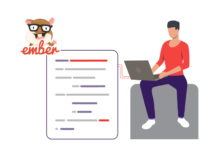Assisted living or senior living is one of the ways to help aging members of the family unit or society live life and maintain independence. With assisted living, seniors and elderly loved ones have access to the help they need to live each day on their terms. Assisted living has helped many seniors deal with the fear of being taken away from their homes to nursing care facilities or end-of-life homes. By receiving help from trained professionals, seniors are able to remain in their homes and thrive better through assisted living services.
Assisted living may be the best solution if you have an elderly loved one who has shown vehement disinterest in being relocated to an elder care facility. However, you should know as many things as possible about this service before you get started. You should also be able to tell the difference between common terms like home care and personal care, what different care licenses mean, and the level of care your loved one needs.
This article explains what you need to know about assisted living while answering some of the common questions you may have in mind.
What Does Assisted Living Offer?
Before paying for a service, especially a care service like assisted living, you should know what it entails. Assisted living facilities in Rhode Island offer seniors and older adults a chance to enjoy personalized care in a residential setting. This type of service is designed for seniors who require support for their health and well-being. Each senior undergoes a comprehensive assessment to determine the level of care or support they require.
Aside from providing health monitoring, healthy lifestyle practices, and social engagement, assisted living services also offer other perks like medication management and assistance with daily living activities like bathing, dressing, and grooming. Many of these services also include meals, transportation to medical appointments and events, laundry, and social programs to keep the elderly engaged throughout.
For many assisted living services, the staff is available 24/7 to attend to the needs of the residents. They make sure that each resident gets the level of care, support, and help required.
What isn’t included in Assisted Living?
Be advised that assisted living is not the same as skilled nursing services or nursing home care. In assisted living facilities, residents receive full help and care from trained care professionals. On the other hand, skilled nursing facilities have certified nurses, medical staff, and healthcare professionals providing full-time care to residents. Skilled nursing services are recommended for elders who require a higher level of short or long-term medical care.
For skilled nursing homes or nursing home care, residents may be able to use their Medicaid to cover some of the costs of their rehabilitation and medical care needs. Residents may also come across other supportive services designed to improve their health and aid recovery.
What Activities of Daily Living (ADL) Are Provided in Assisted Living Facilities?
Assistance with daily activities is one of the commonest reasons seniors and their loved ones choose assisted living facilities. There’s an increasing need for assistance among seniors. Statistical research shows that about 64% of persons in assisted living facilities need help with bathing, 57% with walking, 48% with dressing, 40% with toileting, 29% with bed transfers, and 19% with eating.
These daily activities are important to maintain seniors’ health and wellness and make an overall difference in their quality of life.
Overall Levels of Care Provided At Assisted Living Facilities
Each new resident at an assisted living facility undergoes a comprehensive health and wellness assessment. The assessment result is used to determine the level of care services each resident needs. There are three main levels of care provided at assisted living facilities, they include;
Level 1 Care – This is also known as a low level of care. Residents classed in this category are almost fully independent and may not need help performing their activities of daily living. Some residents in this category may require mild reminders for their medication usage or a low level of general supervision or assistance.
Level 2 Care – This is also known as an intermediate or moderate level of care. This type of resident is partly independent. They may not need help with some activities like feeding but need help with other activities like medication reminders, bathing, getting dressed, attending medical appointments, etc.
Level 3 Care – This is also known as a High level of care. Residents in this category suffer from health problems or impairments that affect their ability to perform activities of daily living. They require help in all areas to ensure that their health and other needs are properly managed.































